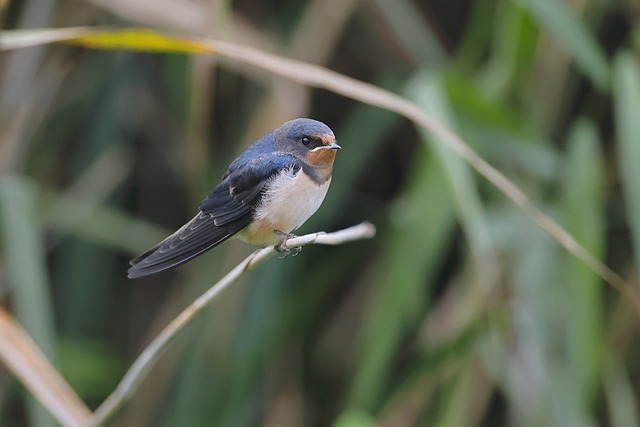Perek Shira – Chapter 4 (Part II): The Spider and the Fly
סְנוּנִית אוֹמֶרֶת לְמַעַן יְזַמֶּרְךָ כָבוֹד וְלֹא יִדֹּם יי אֱלֹהַי לְעוֹלָם אוֹדֶךָּ
The swallow says, “In order that my soul shall praise You and not be silent, Hashem my God, I will thank You forever.” (Psalms 30:13)
The text says kavod (honor) but translations almost universally render it “my soul.” As the Radak explains, kavod refers to the soul. (Verse 10 of this psalm says “Can dust praise You?” precluding the body. The soul, however, can and does praise Hashem.)
טַסִּית אוֹמֶרֶת עֶזְרִי מֵעִם יי עֹשֵׂה שָׁמַיִם וָאָרֶץ
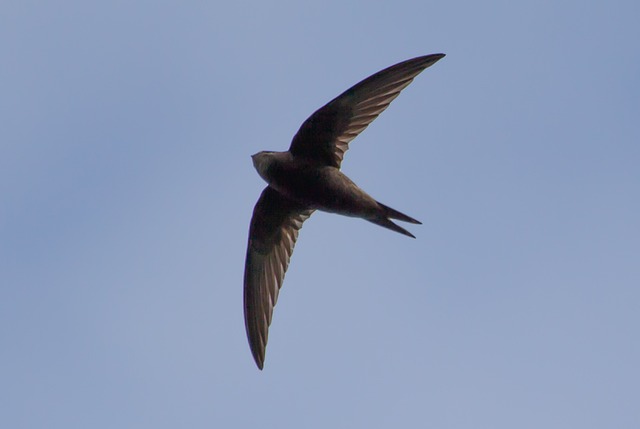
The midrash in Bereishis Rabbah (68:2) attributes this verse to Yaakov Avinu. When Eliezer sought a wife for Yitzchak, he led a caravan bearing treasure; Yaakov arrived emptyhanded but undiscouraged, fully aware that his assistance ultimately comes from God.
צִיָּה אוֹמֶרֶת אוֹר זָרֻעַ לַצַּדִּיק וּלְיִשְׁרֵי לֵב שִׂמְחָה

Rashi explains that this verse means “sown” literally. When you plant something, you’re preparing it to sprout and grow. That’s the case with light for the righteous and joy for the upright: they’re ready to burst forth and multiply!
רְצִפִי אוֹמֵר נַחֲמוּ נַחֲמוּ עַמִּי יֹאמַר אֱלֹהֵיכֶם
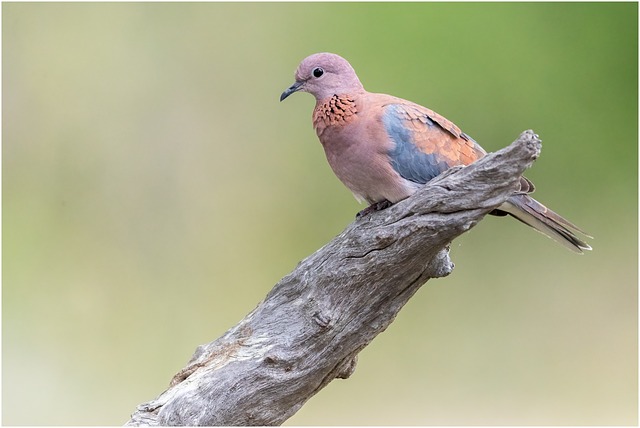
Eicha Rabbah (1:23) teaches that the Jews sinned doubly (“Jerusalem has sinned a sin” – Eicha 1:8) and were punished doubly (“[I]t has received … double for all its sins” – Isaiah 40:2). Accordingly, this verse tells us that they were likewise comforted doubly.
חֲסִידָה אוֹמֶרֶת דַּבְּרוּ עַל לֵב יְרוּשָׁלִַם וְקִרְאוּ אֵלֶיהָ כִּי מָלְאָה צְבָאָהּ כִּי נִרְצָה עֲוֹנָהּ כִּי לָקְחָה מִיַּד יי כִּפְלַיִם בְּכָל חַטֹּאתֶיהָ

The Ran questions this verse: we talk about God’s mercy all the time, so how can we say that God punished the Jews doubly? He answers that it’s like a father punishing his son; he never punishes as much as the son really deserves, but he still feels like he punished him too much (Drashos HaRan 9:15).
עוֹרֵב אוֹמֵר מִי יָכִין לָעֹרֵב צֵידוֹ כִּי יְלָדָיו אֶל אֵל יְשַׁוֵּעוּ
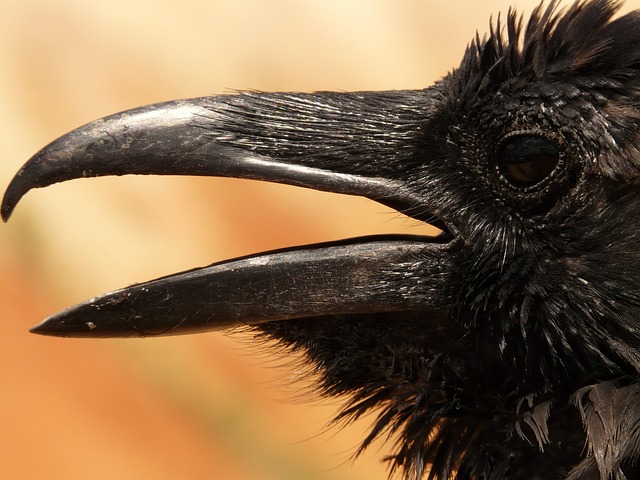
The Malbim explains that God’s providence even extends to the raven, which is generally considered one of nature’s nastier creatures. He cites the Midrash Tanchuma that male ravens hate their offspring, but God ensures that they are fed.
זַרְזִיר אוֹמֵר נוֹדַע בַּגּוֹיִם זַרְעָם וְצֶאֱצָאֵיהֶם בְּתוֹךְ הָעַמִּים כָּל רֹאֵיהֶם יַכִּירוּם כִּי הֵם זֶרַע בֵּרַךְ יי
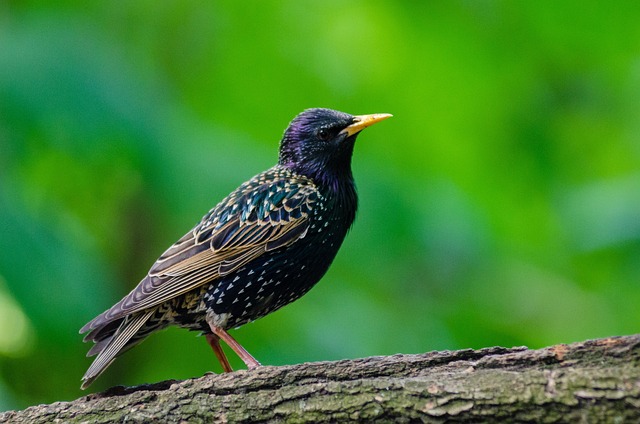
The Radak clarifies what it means to be known among the nations: when the Jews travel abroad, whether for business or pleasure, they will be recognized and afforded great honor. The peoples will proclaim, “These are the progeny whom God has blessed!”
אֲוַז שֶׁבַּבַּיִת אוֹמֶרֶת הוֹדוּ לַיי קִרְאוּ בִשְׁמוֹ הוֹדִיעוּ בָעַמִּים עֲלִילוֹתָיו שִׁירוּ לוֹ זַמְּרוּ לוֹ שִׂיחוּ בְּכָל נִפְלְאוֹתָיו

The ibn Ezra tells us how all these various types of praises are to be made. “Sing to Him” – by mouth. “Make music to Him” – on the harp. “Speak of all His wonders” – to other people.
אֲוַז הַבָּר הַמְּשׁוֹטֶטֶת בַּמִּדְבָּר כְּשֶׁרוֹאֵה אֶת יִשְׂרָאֵל עוֹסְקִים בַּתּוֹרָה אוֹמֶרֶת קוֹל קוֹרֵא בַּמִּדְבָּר פָּנוּ דֶּרֶךְ יי יַשְׁרוּ בַּעֲרָבָה מְסִלָּה לֶאֱלֹהֵינוּ וְעַל מְצִיאוּת מְזוֹנוֹתֶיהָ בַּמִּדְבָּר אוֹמֶרֶת אָרוּר הַגֶּבֶר אַשֵּׁר יִבְטַח בָּאָדָם בָּרוּךְ הַגֶּבֶר אֲשֶׁר יִבְטַח בְּיי וְהָיָה יי מִבְטָחוֹ

Rashi explains that the voice calling is the ruach hakodesh, God’s “spirit” of inspiration. The path to be cleared is for the exiles to return to Jerusalem.
The Shulchan Aruch teaches that if someone who doesn’t need tzedaka takes it, he will eventually need tzedaka for real. One who really needs tzedaka to live but refuses it is culpable for the loss of his own life. One who could use assistance but prefers to live humble life, however, will someday be able to assist others as per our verse, “Blessed is the person who trusts in Hashem.” (Yoreh Deah 255:2)
פְרוֹגִיוֹת אוֹמְרִים בִּטְחוּ בַיי עֲדֵי עַד כִּי בְּיָהּ יי צוּר עוֹלָמִים

The words tzur olamim can be translated many ways: “rock of ages,” “rock of eternity,” “strength of worlds,” etc. The Malbim understands it to mean that God is the strength of all worlds because all worlds rely on Him merely to exist, let alone to thrive. The result is that God’s might rules over everything.
רַחֲמָהּ אוֹמֶרֶת אֶשְׁרְקָה לָהֶם וַאֲקַבְּצֵם כִּי פְדִיתִים וְרָבוּ כְּמוֹ רָבוּ
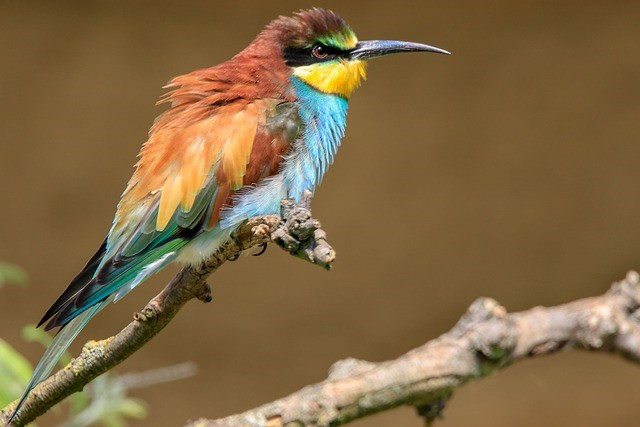
The prayer Tikanta Shabbos (in the Shabbos musaf) is according to alef-beis, but backwards: תשר"ק צפע"ס נמל"ך יטח"ז והד"ג ב"א, each phrase corresponds to a different Biblical reference. The Aruch HaShulchan (OC 286:2) tells us that the phrase תשר"ק (whistle) is a reference to our verse, in which God summons us to return.
צִפֹּרֶת כְּרָמִים אוֹמֶרֶת אֶשָּׂא עֵינַי אֵל הֶהָרִים מֵאַיִן יָבֹא עֶזְרִי
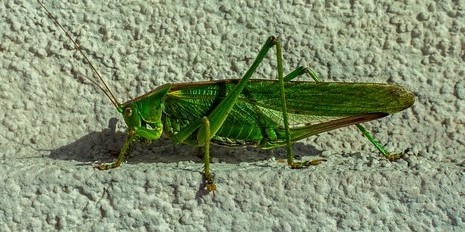
The Radak explains: “If I raise my eyes to the mountains, it won’t do me any good because the only help is from God; to Him I will lift my eyes because He will help us and gather us from the nations. He made Heaven and Earth, and it is within His ability to do whatever He desires.”
חָסִיל אוֹמֵר יי אֱלֹהַי אַתָּה אֲרוֹמִמְךָ אוֹדֶה שִׁמְךָ כִּי עָשִׂיתָ פֶּלֶא עֵצוֹת מֵרָחוֹק אֱמוּנָה אֹמֶן
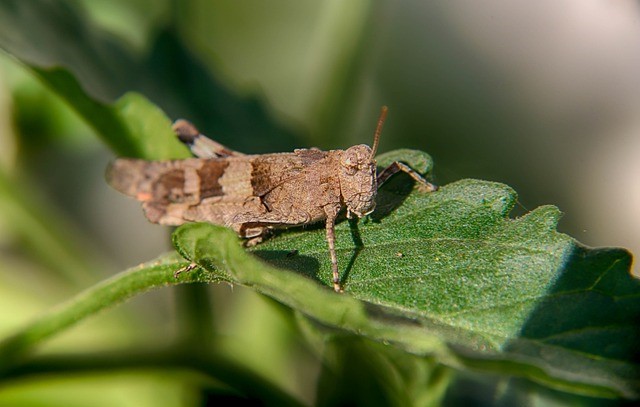
According to Rashi, the “counsels from afar” refer to those made long ago, specifically the ones that God made to Avraham at the Covenant Between the Parts.
שְׂמָמִית אוֹמֶרֶת הַלְלוּהוּ בְצִלְצְלֵי שָׁמַע הַלְלוּהוּ בְּצִלְצְלֵי תְרוּעָה

Why should we praise Hashem with cymbals? As Rav Hirsch explains, they’re real attention-getters. When a musician crashes a pair of cymbals, people notice!
זְבוּב אוֹמֵר בְּשָׁעָה שֶׁאֵין יִשְׂרָאֵל עוֹסְקִים בַּתּוֹרָה קוֹל אֹמֵר קְרָא וְאָמַר מָה אֶקְרָא כָּל הַבָּשָׂר חָצִיר וְכָל חַסְדּוֹ כְּצִיץ הַשָּׂדֶה יָבֵשׁ חָצִיר נָבֵל צִיץ כִּי רוּחַ יי נָשְׁבָה בּוֹ אָכֵן חָצִיר הָעָם יָבֵשׁ חָצִיר נָבֵל צִיץ וּדְבַר אֱלֹהֵינוּ יָקוּם לְעוֹלָם

Why should kindness wilt? Mesillas Yesharim explains that this refers to acts of kindness that people perform for their own sakes rather than altruistically. They don’t have pure intentions and they seek neither to glorify God nor to redeem Israel through their deeds.
בּוֹרֵא נִיב שְׂפָתָיִם שָׁלוֹם שָׁלוֹם לָרָחוֹק וְלַקָּרוֹב אָמַר יי וּרְפָאתִיו
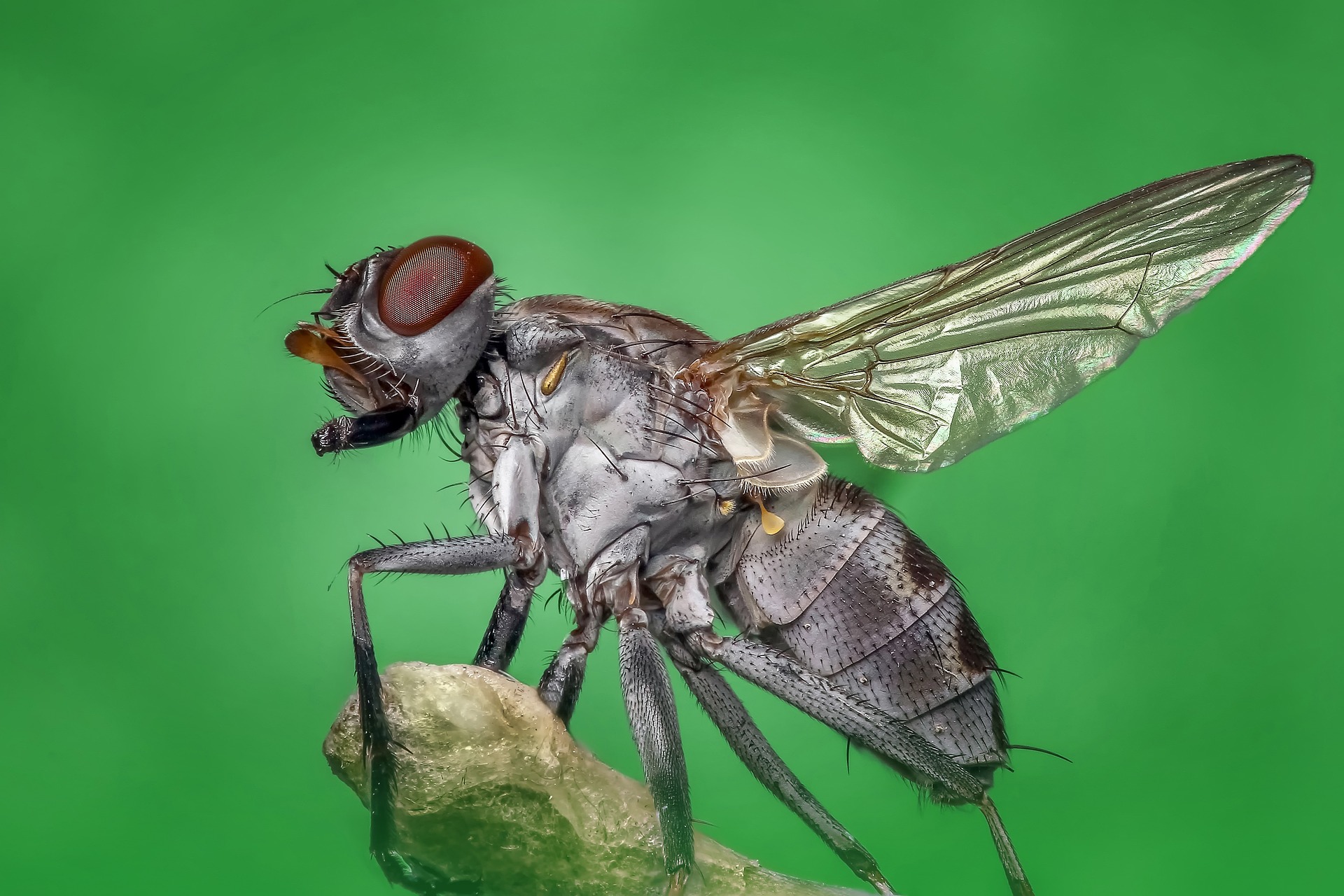
The Talmud in Sanhedrin (99a) infers the greatness of baalei teshuvah from this verse. We see that God first extends peace to those who used to be far from Him; only after that does He extend it to those who were always near.
תַּנִּינִים אוֹמְרִים הַלְלוּ אֶת יי מִן הָאָרֶץ תַּנִּינִים וְכָל תְּהֹמוֹת

The Rambam in his Mishneh Torah explains that our environment is not sentient, so don’t misunderstand this verse to be David calling upon the depths to praise God. Rather, we should praise God when we see the might of His handiwork! (Yesodei HaTorah 3:11)
לִוְיָתַן אוֹמֵר הוֹדוּ לַיי כִּי טוֹב כִּי לְעוֹלָם חַסְדּוֹ

The Malbim explains that, after instructing us to rejoice and to bless, David now tells to give thanks to Hashem for the goodness that we receive from Him. This goodness is His kindness, which lasts forever. This is so regardless of whether He is currently running the world according to the rules of “nature” or in a more miraculous fashion.
דָּגִים אוֹמְרִים קוֹל יי עַל הַמָּיִם אֵל הַכָּבוֹד הִרְעִים יי עַל מַיִם רַבִּים

According to the Talmud (Brachos 28b), the original 18 brachos in Shemoneh Esrei were instituted corresponding to the eighteen occurrences of “Hashem” in this Psalm. The nineteenth bracha, which was added later, was instituted corresponding to the one occurrence of “God,” in this verse.
צְפַרְדֵּעַ אוֹמֶרֶת בָּרוּךְ שֵׁם כְּבוֹד מַלְכוּתוֹ לְעוֹלַם וָעֶד

The Midrash (Devarim Rabbah 2:25) teaches that when Moshe visited Heaven to receive the Torah, he heard the angels singing this praise, which he then taught to the Jews. The practice became to recite it quietly so as not to flaunt our “stolen” praise. The exception is Yom Kippur, when the Jews themselves are considered angelic.

